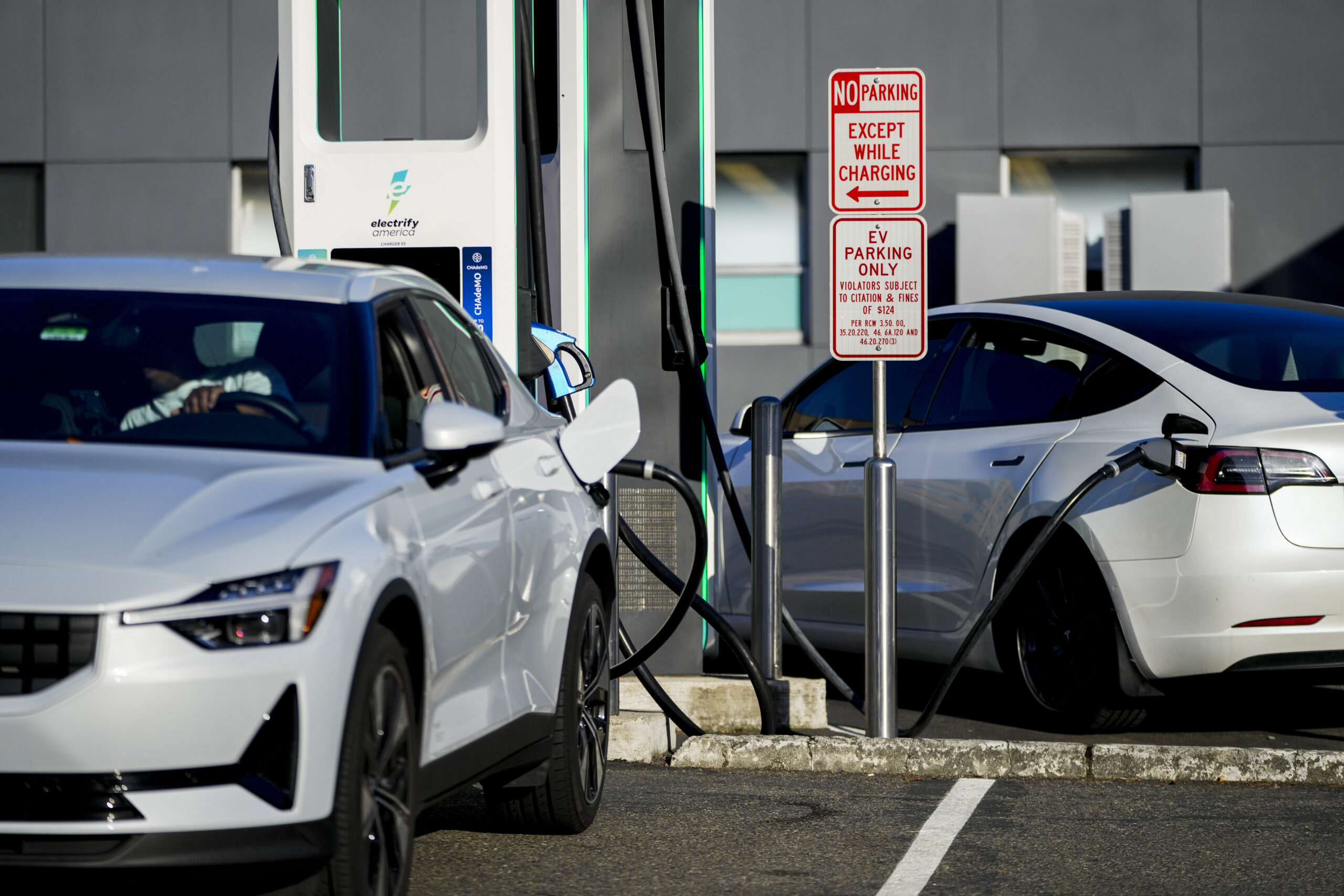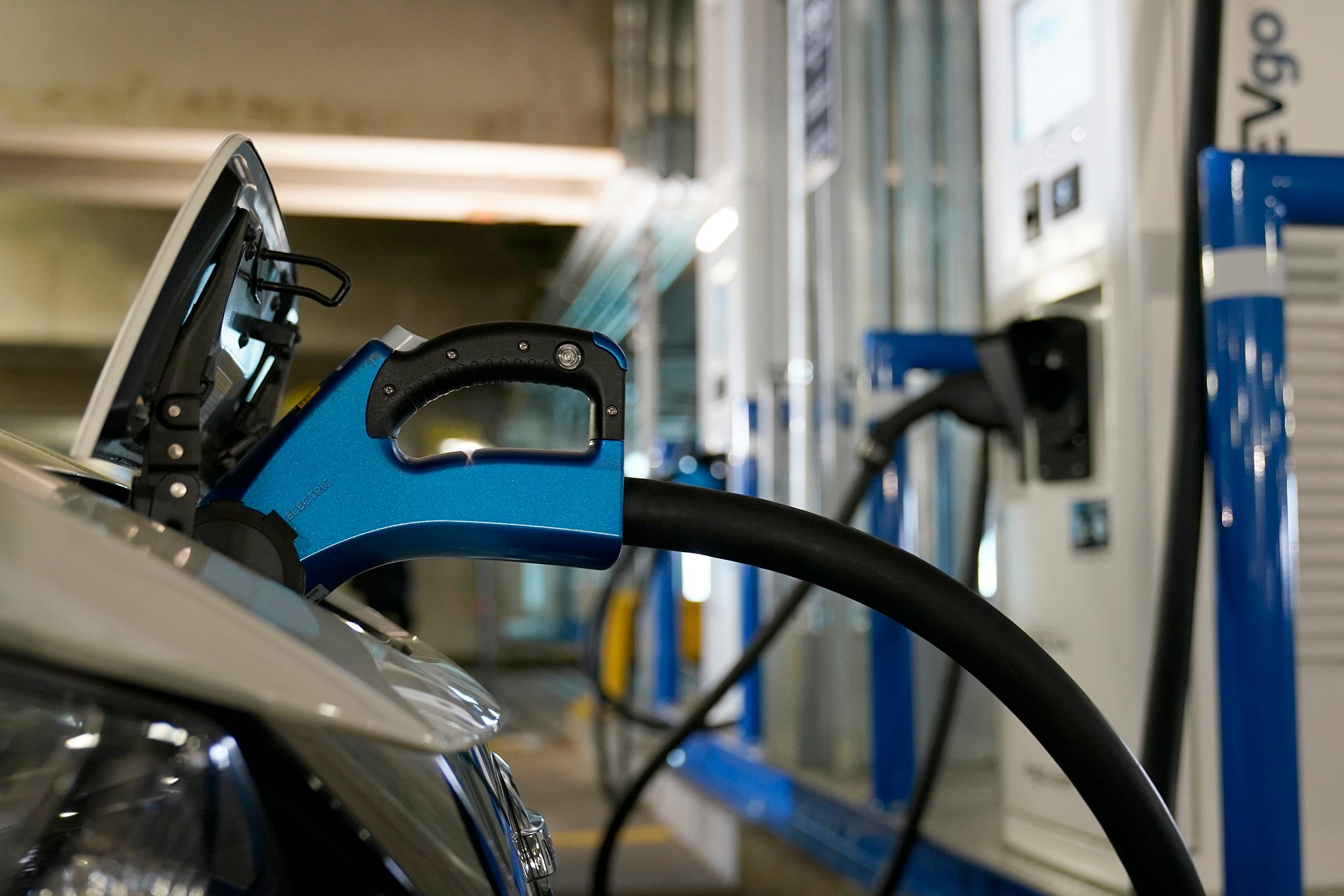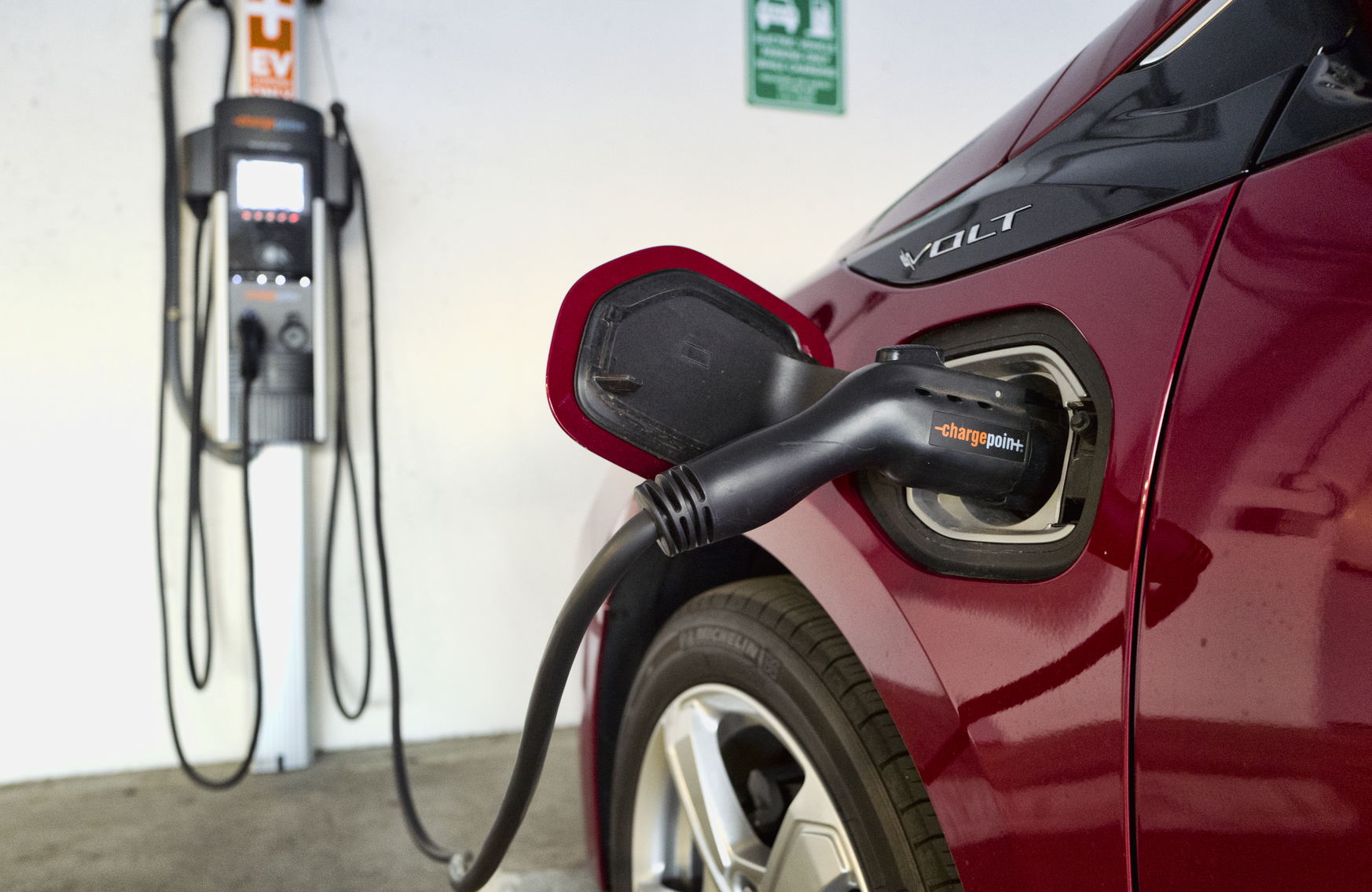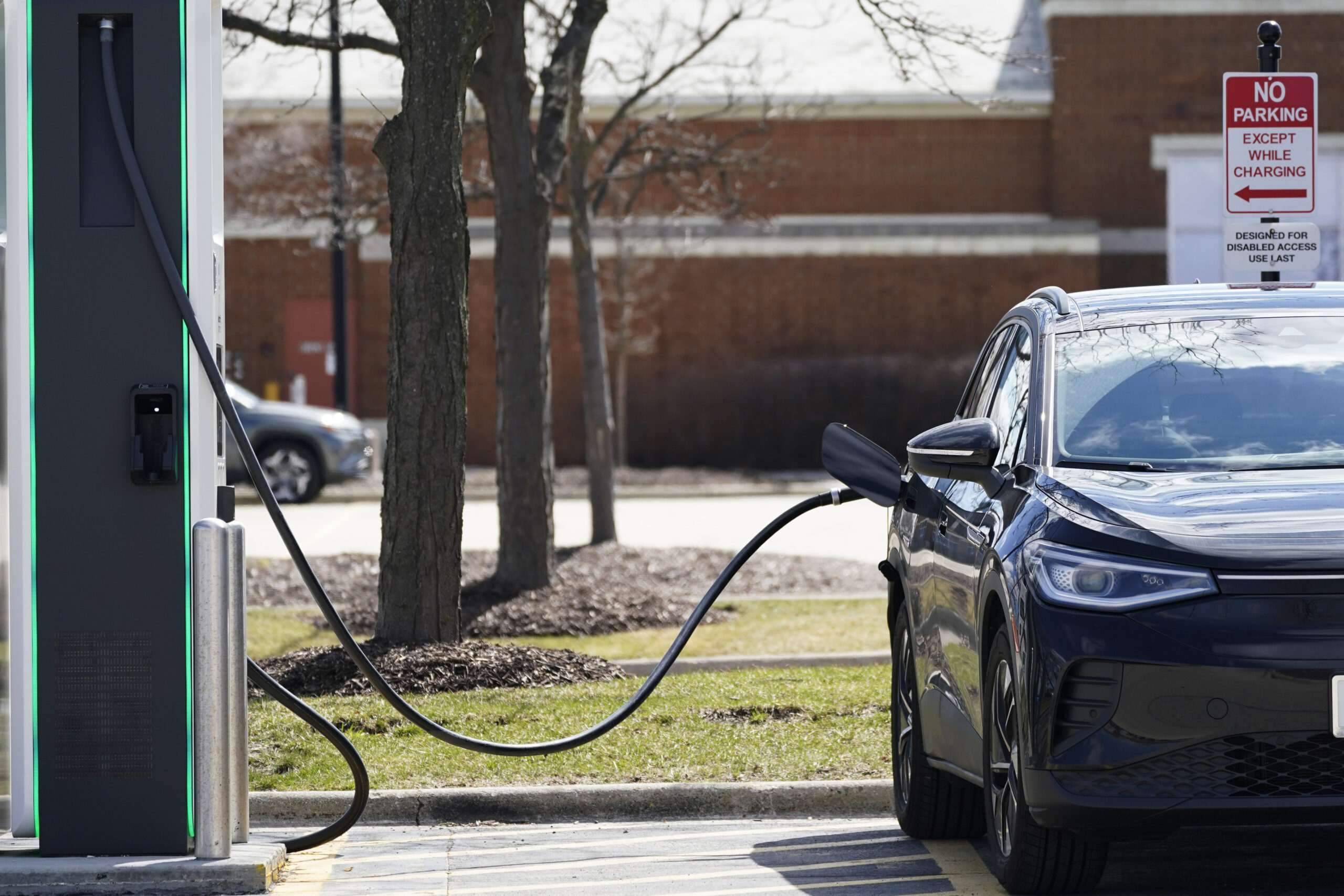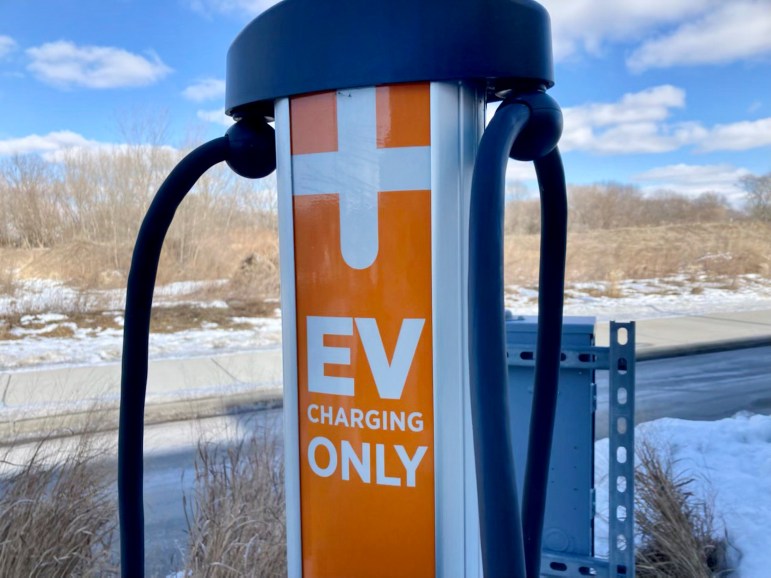The first federally-funded electric vehicle charging stations are up and running in Wisconsin, Gov. Tony Evers announced this week.
The fast-charging stations came online last month at Kwik Trip locations in Ashland, Menomonie and Chippewa Falls. They’re three of the 53 charging station projects at businesses across Wisconsin that have been awarded funding.
The state is receiving $78 million from the federal government’s National Electric Vehicle Infrastructure, or NEVI, Formula Program, funded through the Bipartisan Infrastructure Law. The 53 projects announced so far account for about $23 million of that funding.
News with a little more humanity
WPR’s “Wisconsin Today” newsletter keeps you connected to the state you love without feeling overwhelmed. No paywall. No agenda. No corporate filter.
In a statement, Evers said expanding EV infrastructure is critical to ensuring the state meets the demands of “a 21st-century workforce and economy.”
“I look forward to more fast-charging stations coming online as we continue building upon our work to bolster our EV infrastructure and provide more sustainable transportation alternatives for Wisconsinites and visitors alike traveling across our state,” the governor stated.
The remaining 50 charging projects that have already been announced are expected to continue to come online through the first half of 2026, said Kaleb Vander Wiele, the transportation electrification project manager at the state Department of Transportation.
“There’s always a potential for a delay due to some supply chain issues that we’re still seeing,” he said. “But by the middle of 2026, we should see most of these charging stations online.”
In order to receive federal funding, the state had to develop “alternative fuel corridors,” a linkage of major roadways connecting most of the state.
Vander Wiele said the alternative fuel corridor system was designed to allow EV owners to travel throughout the state without worrying about access to charging stations.
The 53 sites selected in the first round of funding were located at businesses along the corridor system. The state DOT has opened another round of applications to fill an additional 13 locations included in the corridor map.
“Once we’ve contracted for those 13 locations, we intend to potentially have around $40 million remaining for the program,” Vander Wiele said. “We would then have the authority to utilize those funds in a discretionary manner, being able to fund charging stations off the alternative fuel corridor system.”
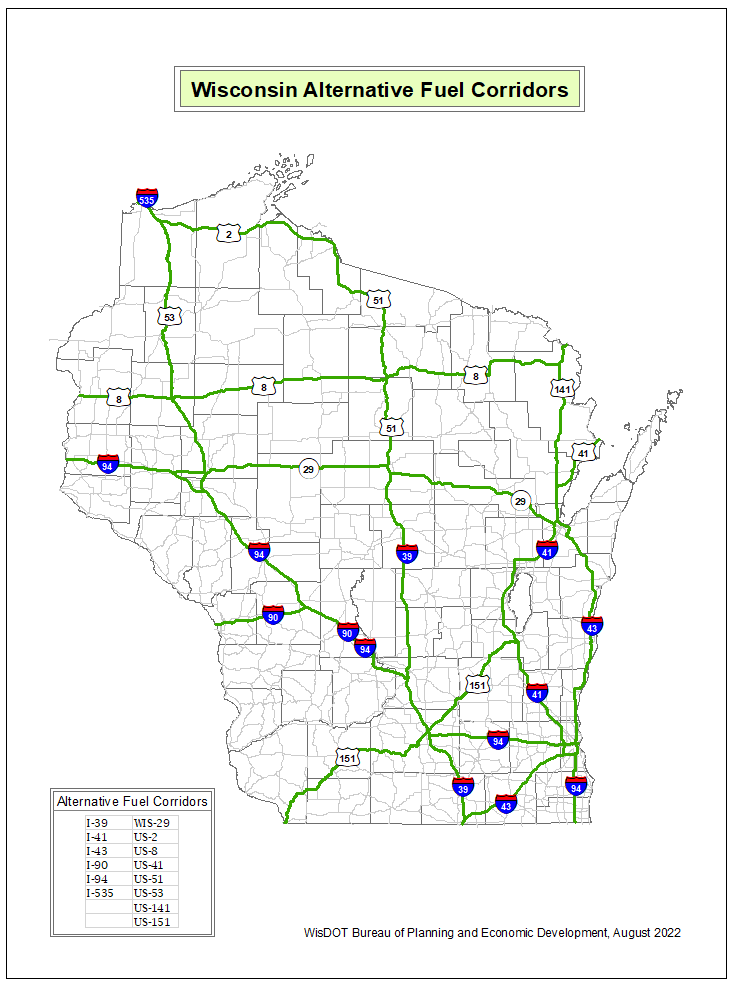
The three projects that came online in December were all located at Kwik Trip stores. In the first round of funding, 24 Kwik Trip stores received awards.
John McHugh, vice president of external relations at Kwik Trip, said the company believes adding electric vehicle charging to some of its stores will help provide better service to customers. He said the Ashland location specifically could have a big impact.
“There’s not a lot of EV charging opportunities up in that part of northern Wisconsin,” he said.
McHugh also said the company has broader plans to expand its options for EV owners, aiming to eventually build charging stations at roughly 20 percent of its locations.
“Our intent is to put our locations with EV capabilities (along) those major thoroughfares, the interstate, the places where we know that people are traveling probably a little bit longer distance,” he said.
While federally funded chargers are beginning to come online in Wisconsin, only 44 stations have opened nationwide since $7.5 billion was allocated to expand EV charging in 2021, according to the EV States Clearinghouse, a resource for state agencies to plan for and implement EV programs.
Ben Behlke, clean technology manager at the nonprofit RENEW Wisconsin, said the build-out of charging stations is “moving a little bit on the slow side.”
“Sometimes these programs take a while to build out. It’s a lot of chargers that are going online across the United States,” Behlke said. “With that comes working with utilities, the local governments (and) the state DOT. Each one of those needs to play a role.”
In Wisconsin, using the $78 million from the federal government required a change in state law that allowed businesses that are not utilities to sell electricity by the amount used instead of the time a car is plugged into an EV charger.
Once the first round of chargers is built, Behlke said he expects most states will have a better handle on the logistics of building out a charging network, which will allow the process to move a little faster.
Wisconsin Public Radio, © Copyright 2025, Board of Regents of the University of Wisconsin System and Wisconsin Educational Communications Board.

